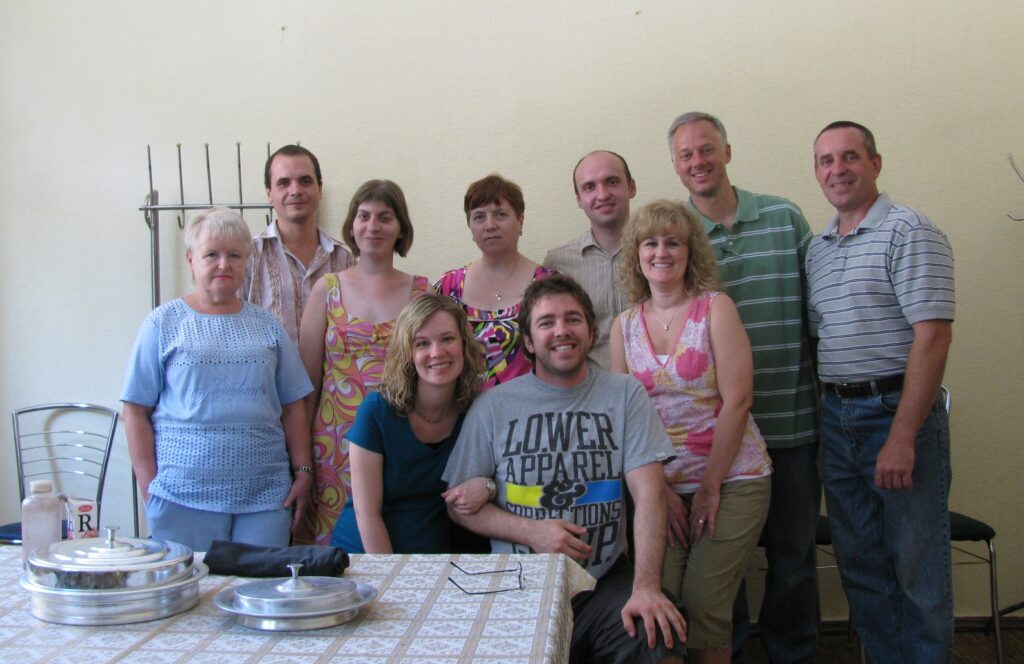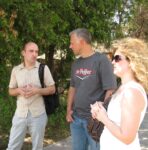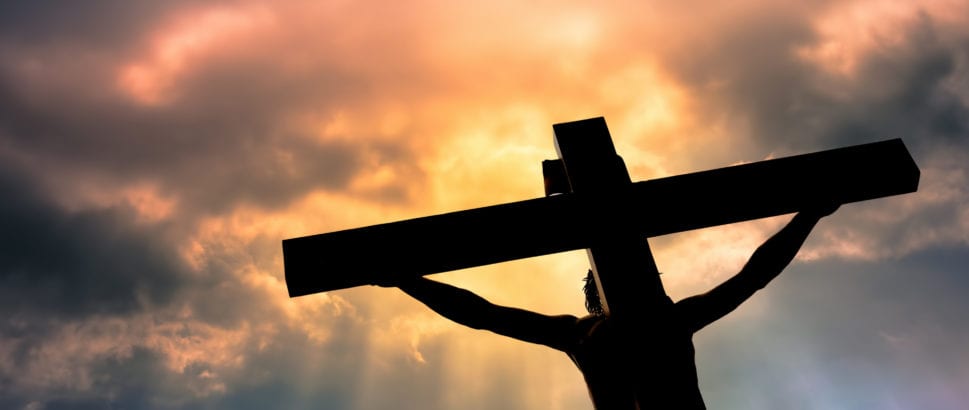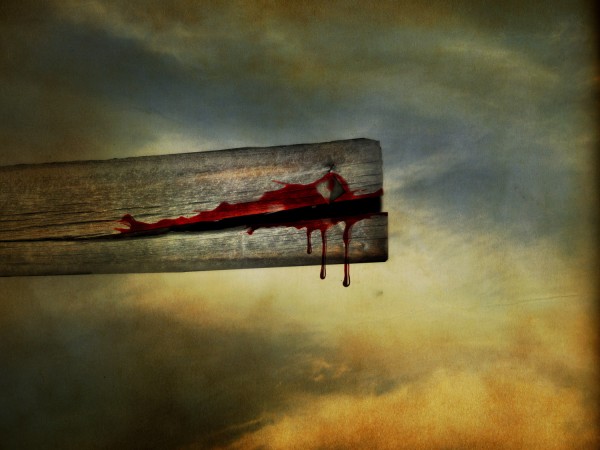
I know you are aware of the Russian invasion of Ukraine and the death and devastation unfolding on the streets and among the people of its cities. I know your heart is heavy. And I know you are in prayer. Me, too.
All war is sinful and tragic. All violence is decidedly against God’s will. The right thing to do today is to pray for God’s peace, to pray for the people on all sides of this unholy conflict, to ask God to intervene and stop the madness.
As you are doing that, would you please pray for some very specific people in Kharkiv whom Carrie-Anne and I love?
 Back in 2010, my wife and I spent eleven days in Kharkiv, a fairly major eastern Ukrainian city about 20 miles from the Ukraine-Russia border. We were there to visit and encourage David and Olivia Nelson, a sweet missionary couple we were supporting from the Legacy Church. We love David and Olivia. We missed them terribly in Fort Worth and were very anxious to spend the time with them. What caught us off guard was how much and how quickly we grew to love the Ukrainians there.
Back in 2010, my wife and I spent eleven days in Kharkiv, a fairly major eastern Ukrainian city about 20 miles from the Ukraine-Russia border. We were there to visit and encourage David and Olivia Nelson, a sweet missionary couple we were supporting from the Legacy Church. We love David and Olivia. We missed them terribly in Fort Worth and were very anxious to spend the time with them. What caught us off guard was how much and how quickly we grew to love the Ukrainians there.
I don’t know where any of these people are today. I don’t know anything about them or their families. But I am talking to our Lord about them today and I hope you will join me. I can’t get some of these people out of my head today. Or my heart.
 I’m thinking about Andrei, a funny little guy who looks like Billy Crystal but who thinks and talks like he just stepped out of the Lincoln-Douglas debates. Super smart. Whoa. Andrei had only been baptized about seven months before we arrived and he was on fire for our Lord. He took off work one day to walk Carrie-Anne and me around Liberty Square and through some of the 500-year-old cathedrals. Andrei also drew blood when he beat my back with a ceremonial branch at a Ukrainian sauna. I think it was meant to honor me. Maybe.
I’m thinking about Andrei, a funny little guy who looks like Billy Crystal but who thinks and talks like he just stepped out of the Lincoln-Douglas debates. Super smart. Whoa. Andrei had only been baptized about seven months before we arrived and he was on fire for our Lord. He took off work one day to walk Carrie-Anne and me around Liberty Square and through some of the 500-year-old cathedrals. Andrei also drew blood when he beat my back with a ceremonial branch at a Ukrainian sauna. I think it was meant to honor me. Maybe.
 I’m praying for Valerie and Julia. Valerie was my interpreter when I preached and taught during our time in Kharkiv. I remember having to wait on him while he came up with the Russian words for my American phrases like “wrapped around her finger” and “jump for joy.” He told me there is no Russian equivalent for “compels” as in “Christ’s love compels us.” A big red-headed dude who looked like he could suit up and play for your college alma mater right now. Very gentle and kind. He wanted to become a preacher. I have no idea if he did.
I’m praying for Valerie and Julia. Valerie was my interpreter when I preached and taught during our time in Kharkiv. I remember having to wait on him while he came up with the Russian words for my American phrases like “wrapped around her finger” and “jump for joy.” He told me there is no Russian equivalent for “compels” as in “Christ’s love compels us.” A big red-headed dude who looked like he could suit up and play for your college alma mater right now. Very gentle and kind. He wanted to become a preacher. I have no idea if he did.
I’m thinking about Alexander, a dentist and oral surgeon. He told me in front of everybody that drinking diet soda was bad for my teeth. He spoke really good English except when he said the word “naked.” When we were reading Genesis 1 out loud he kept saying “nak’d,” just one syllable.
 I’m praying for Yelena, David and Liv’s Russian language teacher. She taught Carrie-Anne and me the only Russian we know. We still say “lublu” sometimes, the Russian word for love. And Victoria, the elementary school teacher. Robert, the preacher at the Baptist church on the west side of town. Sergei, who once served hard time in a Ukrainian prison, preaching at a Christian church of about nine souls on the northeast side of Kharkiv.
I’m praying for Yelena, David and Liv’s Russian language teacher. She taught Carrie-Anne and me the only Russian we know. We still say “lublu” sometimes, the Russian word for love. And Victoria, the elementary school teacher. Robert, the preacher at the Baptist church on the west side of town. Sergei, who once served hard time in a Ukrainian prison, preaching at a Christian church of about nine souls on the northeast side of Kharkiv.
 I could write more about Vitali and Galina, Nikita, Masha, and Kevin. I taught Kevin how to throw an American football with a spiral – I don’t think his real name was Kevin. I learned to tolerate chicken-flavored potato chips. I nearly threw up when David forced me to drink a glass of Kafir. We laughed when we learned the local beautification ordinance meant that everyone had to paint their houses and sheds the same color of gray. I could spend a whole post recounting our worship times together, listening to my Eastern European brothers and sisters sing “Nearer My God to Thee” and “Lamb of God” in Russian. About sharing the bread and the wine together at that tiny church building near Aptarski Lane and in the Nelsons’ living room.
I could write more about Vitali and Galina, Nikita, Masha, and Kevin. I taught Kevin how to throw an American football with a spiral – I don’t think his real name was Kevin. I learned to tolerate chicken-flavored potato chips. I nearly threw up when David forced me to drink a glass of Kafir. We laughed when we learned the local beautification ordinance meant that everyone had to paint their houses and sheds the same color of gray. I could spend a whole post recounting our worship times together, listening to my Eastern European brothers and sisters sing “Nearer My God to Thee” and “Lamb of God” in Russian. About sharing the bread and the wine together at that tiny church building near Aptarski Lane and in the Nelsons’ living room.
We rode the subways where, today, people are huddling together and hiding from the tanks and the missiles. We hung out at the coffee shops that, today, are boarded up and abandoned. We shopped and laughed with the Nelsons’ neighbors at that massive downtown Kharkiv market that, today, is empty.
 That was almost twelve years ago. I don’t know where any of these good people are today – if they are still living in Kharkiv, if they are safe, if they are scared, if they are okay. I am praying for them and their families today and for all the people of that great city where I witnessed first hand our God saving people and advancing his Kingdom.
That was almost twelve years ago. I don’t know where any of these good people are today – if they are still living in Kharkiv, if they are safe, if they are scared, if they are okay. I am praying for them and their families today and for all the people of that great city where I witnessed first hand our God saving people and advancing his Kingdom.
You might be connected to Ukraine through Our House and the Gospel work done for so many years in Donetsk by Tony and Shanna Morrow. I know the Morrows came back to Abilene a few months ago. I found out today that Bill Hayes got out three weeks ago. But I don’t know anything about the community of teenage orphans they established there.
Maybe you’re connected to the people of Ukraine by Eastern European Missions. Maybe you’ve sent Russian and Ukraine language Bibles there.
Pray for the people of Ukraine today. Pray for our Christian brothers and sisters over there, six thousand miles away from Texas, and in so much danger and peril. Pray that the war would end, that all hostilities would cease, that all pain and death and demonstrations of power and force would disappear from that whole region. Pray that God’s will would be done in Ukraine and Moscow just as it is in heaven.
Do not put your trust in politicians or their positions, in armies or their weapons, in generals and secretaries or their strategies and plans. Put your trust and offer your prayers to the One Sovereign who alone can stop the senseless violence against innocent people.
“God is the King of all the earth;
sing to him a psalm of praise.
God reigns over the nations;
God is seated on his holy throne.’
~Psalm 47
Peace. Seriously. Peace.
Allan












Recent Comments